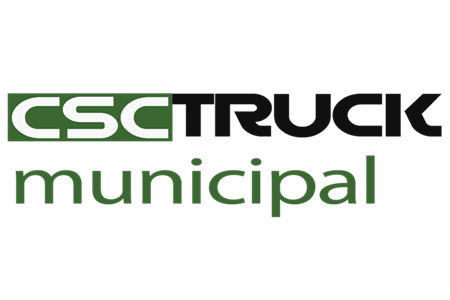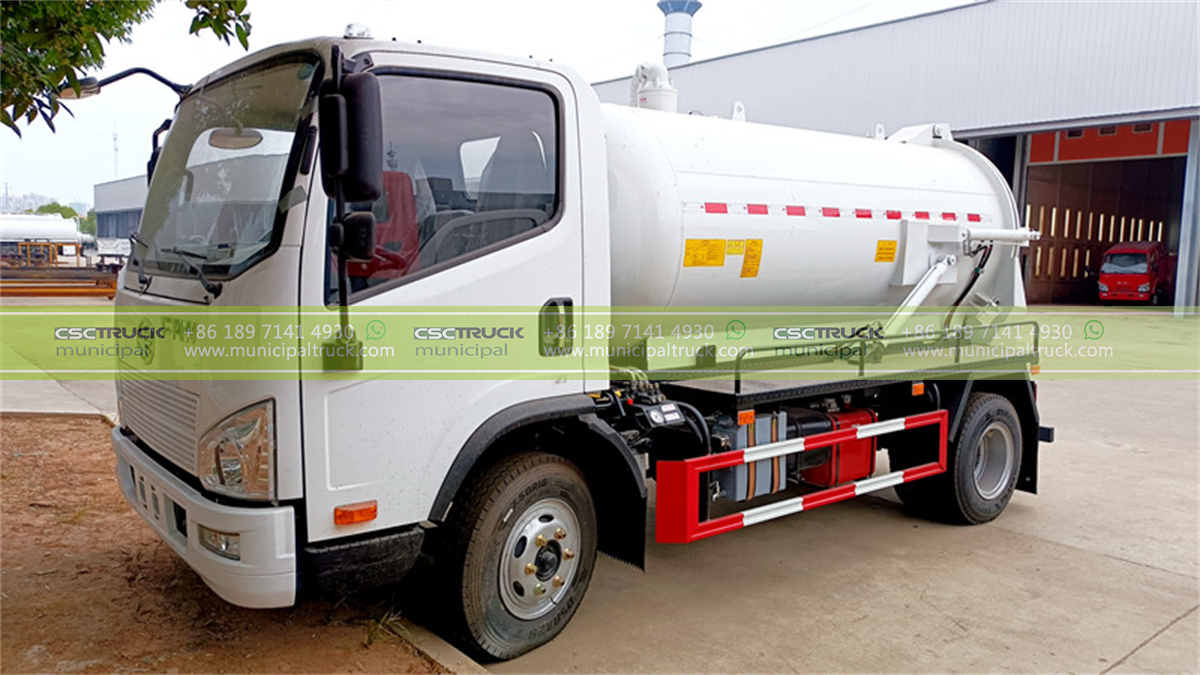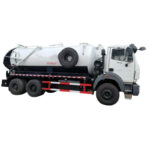In the realm of waste management, sludge collector trucks play a pivotal role in maintaining cleanliness, health, and environmental safety. These specialized vehicles are designed to gather and transport sludge, a semi-solid byproduct of wastewater treatment processes, to designated disposal sites. The efficiency and effectiveness of sludge collection directly impact public health, environmental quality, and the overall well-being of communities. To ensure the seamless operation of sludge collector trucks, meticulous maintenance practices are paramount. This article delves into the significance of sludge collector truck maintenance and provides insights into best practices for sustaining proper waste collection.
The Importance of Sludge Collector Truck Maintenance
Sludge, often a mixture of water, solids, and chemicals, is a byproduct of treating wastewater at treatment plants. It contains a range of contaminants and pathogens that could pose significant risks if not appropriately managed. Sludge collector trucks are equipped with specialized systems for suction, storage, and transportation of sludge from treatment plants to disposal sites. Their proper maintenance is crucial for several reasons:
1. Operational Efficiency: Regular maintenance ensures that all components of the sludge collector truck function optimally. This, in turn, enhances the efficiency of waste collection operations, reducing downtime and increasing productivity.
2. Health and Safety: Sludge can contain harmful pathogens, chemicals, and pollutants. A well-maintained truck minimizes the risk of leaks, spills, and accidents, thereby protecting the health and safety of workers and the community.
3. Environmental Protection: Leaks or malfunctioning equipment can result in sludge entering water bodies or soil, leading to severe environmental contamination. Proper maintenance prevents such incidents, safeguarding ecosystems and natural resources.
4. Regulatory Compliance: Waste management is subject to strict regulations and guidelines to ensure public health and environmental preservation. Maintaining sludge collector trucks by these standards helps avoid legal complications.

Best Practices for Sludge Collector Truck Maintenance
Maintaining sludge collector trucks demands a systematic and comprehensive approach. Here are key best practices to ensure proper waste collection:
1. Regular Inspections:
Frequent inspections are essential to identify potential issues before they escalate. Mechanics and operators should inspect suction hoses, valves, pumps, and storage tanks for signs of wear, corrosion, or leaks. Inspection reports should be documented for future reference.
2. Scheduled Servicing:
Develop a maintenance schedule that encompasses routine servicing of critical components. This includes oil changes, filter replacements, lubrication, and overall system checks. Adhering to a schedule prevents unexpected breakdowns and extends the lifespan of the truck.
3. Training and Education:
Operators and maintenance staff should receive thorough training on the proper operation and maintenance of sludge collector trucks. This empowers them to recognize abnormalities and perform minor maintenance tasks effectively.
4. Fluid Management:
Fluids such as oil, coolant, and hydraulic fluids play a vital role in the truck’s operation. Regularly monitor fluid levels and quality, ensuring they meet manufacturer specifications. Contaminated fluids should be promptly replaced to prevent damage to the truck’s components.
5. Corrosion Prevention:
Sludge collector trucks are exposed to corrosive materials. Implement corrosion prevention measures such as coating vulnerable parts, washing the truck after each use, and promptly addressing any signs of rust.
6. Emergency Preparedness:
Even with meticulous maintenance, emergencies can occur. Equip the truck with spill response kits, personal protective equipment, and tools to address minor issues on-site. Having a contingency plan in place minimizes the impact of unforeseen incidents.
7. Documentation:
Maintain thorough records of all maintenance activities, inspections, repairs, and part replacements. This historical data aids in tracking the truck’s performance over time and provides valuable insights for future maintenance decisions.
8. Collaboration with Manufacturers:
Establish a working relationship with the manufacturers or authorized dealers of the sludge collector trucks. They can guide maintenance schedules, recommend replacement parts, and technical support.
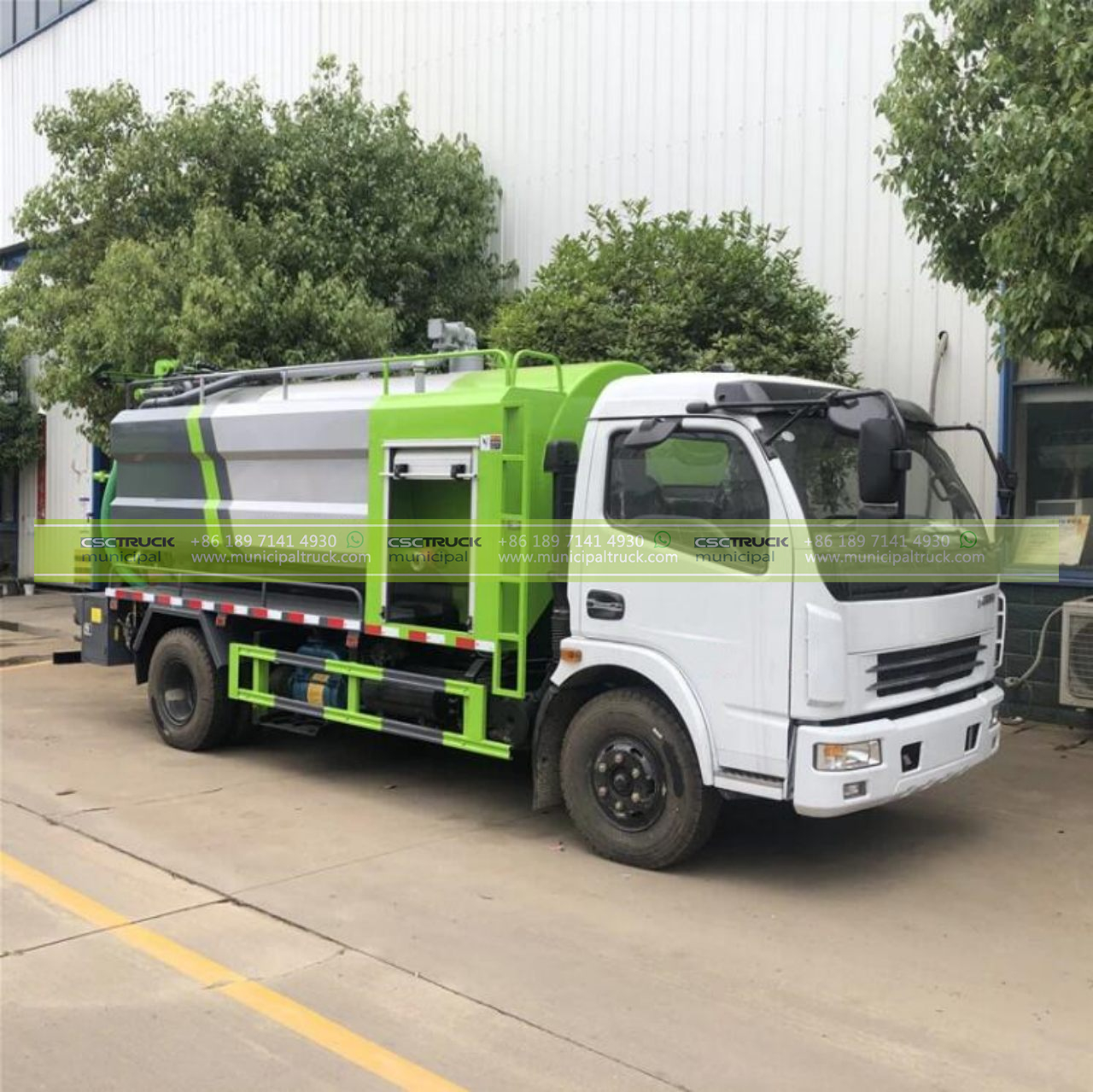
The Future of Sludge Collector Truck Maintenance
As technology continues to advance, the field of sludge collector truck maintenance is also evolving. Predictive maintenance, enabled by sensors and data analytics, can anticipate potential failures based on real-time data, allowing for proactive interventions. Additionally, innovations in materials and coatings can enhance the durability and corrosion resistance of these trucks, prolonging their lifespan and reducing maintenance needs.
Embracing Sustainability in Sludge Collector Truck Maintenance
In recent years, there has been a growing emphasis on sustainability in all aspects of waste management, including sludge collector truck maintenance. Sustainability encompasses not only environmental considerations but also social and economic factors. Incorporating sustainable practices into maintenance routines can lead to long-term benefits for both the waste management industry and the communities it serves.
1. Energy Efficiency:
Efforts to reduce energy consumption can have a significant impact on the sustainability of sludge collector truck maintenance. This can be achieved through the use of energy-efficient components, optimizing routes to minimize fuel consumption, and adopting technologies that enhance fuel economy.
2. Emission Reduction:
Reducing emissions from sludge collector trucks contributes to air quality improvement and mitigates the industry’s carbon footprint. Regular maintenance that ensures optimal engine performance can lead to lower emissions. Additionally, exploring alternative fuels or hybrid technologies can further reduce environmental impact.
3. Waste Minimization:
Sustainability in maintenance extends beyond the truck itself. Proper handling and disposal of maintenance-related waste, such as used oil, filters, and worn-out parts, are essential. Implementing recycling programs and responsible waste disposal practices can minimize the environmental impact of maintenance activities.
4. Lifecycle Thinking:
Adopting a lifecycle perspective involves considering the entire lifespan of the sludge collector truck, from manufacturing to disposal. This approach encourages decisions that maximize durability, minimize resource use, and facilitate proper end-of-life disposal or recycling.
5. Community Engagement:
Engaging with local communities in matters of waste management and maintenance fosters a sense of ownership and responsibility. Transparency about maintenance practices, along with education on the importance of proper waste collection, can create a more informed and supportive community.
6. Cost Efficiency:
Sustainability and cost-efficiency often go hand in hand. While there might be upfront investments in adopting sustainable maintenance practices, the long-term benefits can lead to significant savings. These savings can be channeled into further improvements in waste management infrastructure.
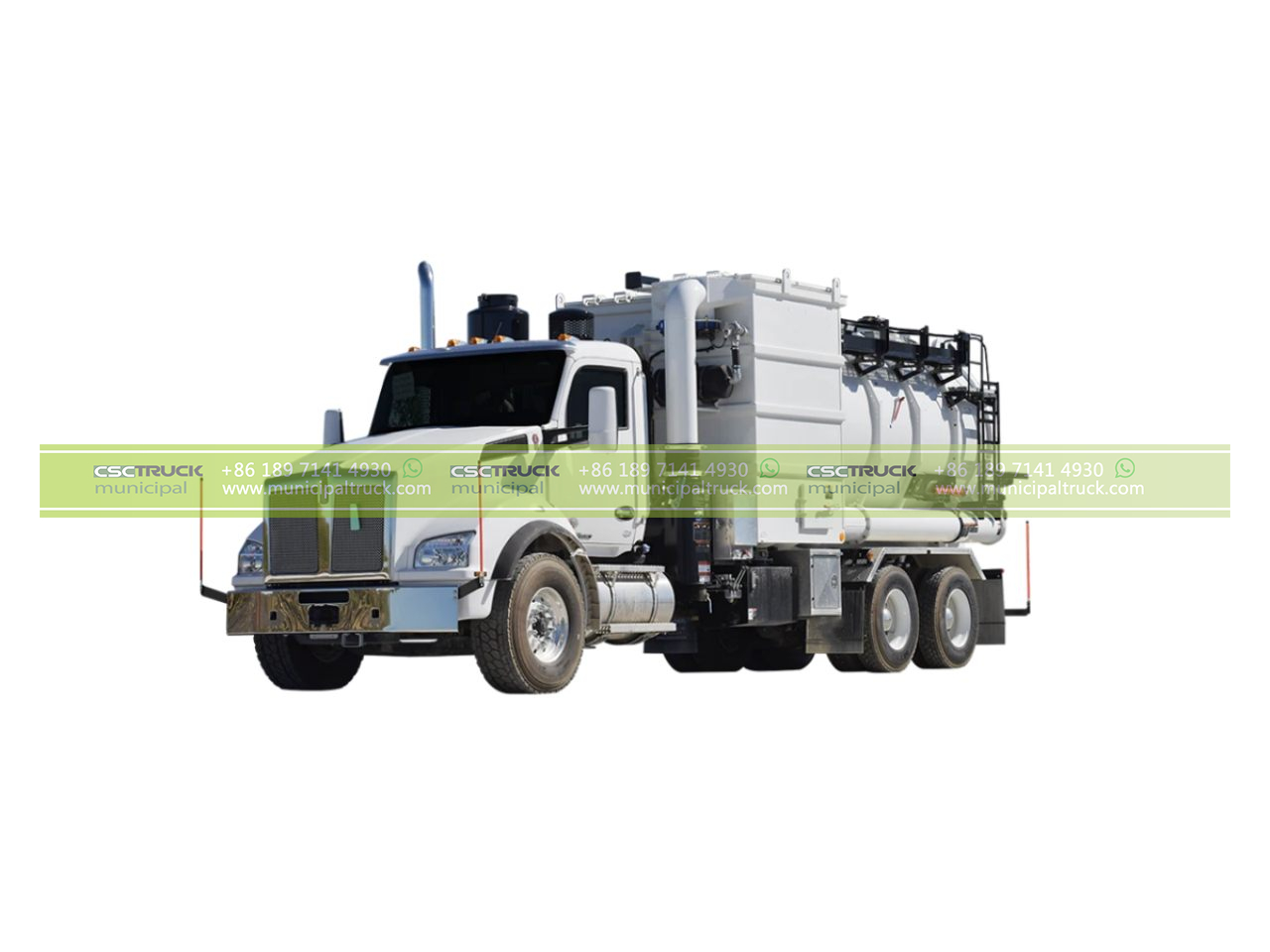
Overcoming Challenges and Looking Ahead
Implementing sustainable maintenance practices in the realm of sludge collector trucks comes with its own set of challenges. Initial costs, resistance to change, and the need for specialized training are among the hurdles that need to be addressed. However, with a long-term perspective and a commitment to progress, these challenges can be overcome.
As technology continues to evolve, the integration of smart systems and data-driven decision-making will play a pivotal role in advancing sludge collector truck maintenance. Predictive maintenance algorithms can anticipate breakdowns and recommend interventions, minimizing downtime and reducing maintenance costs. Furthermore, the development of autonomous or semi-autonomous maintenance procedures can streamline operations and improve efficiency.
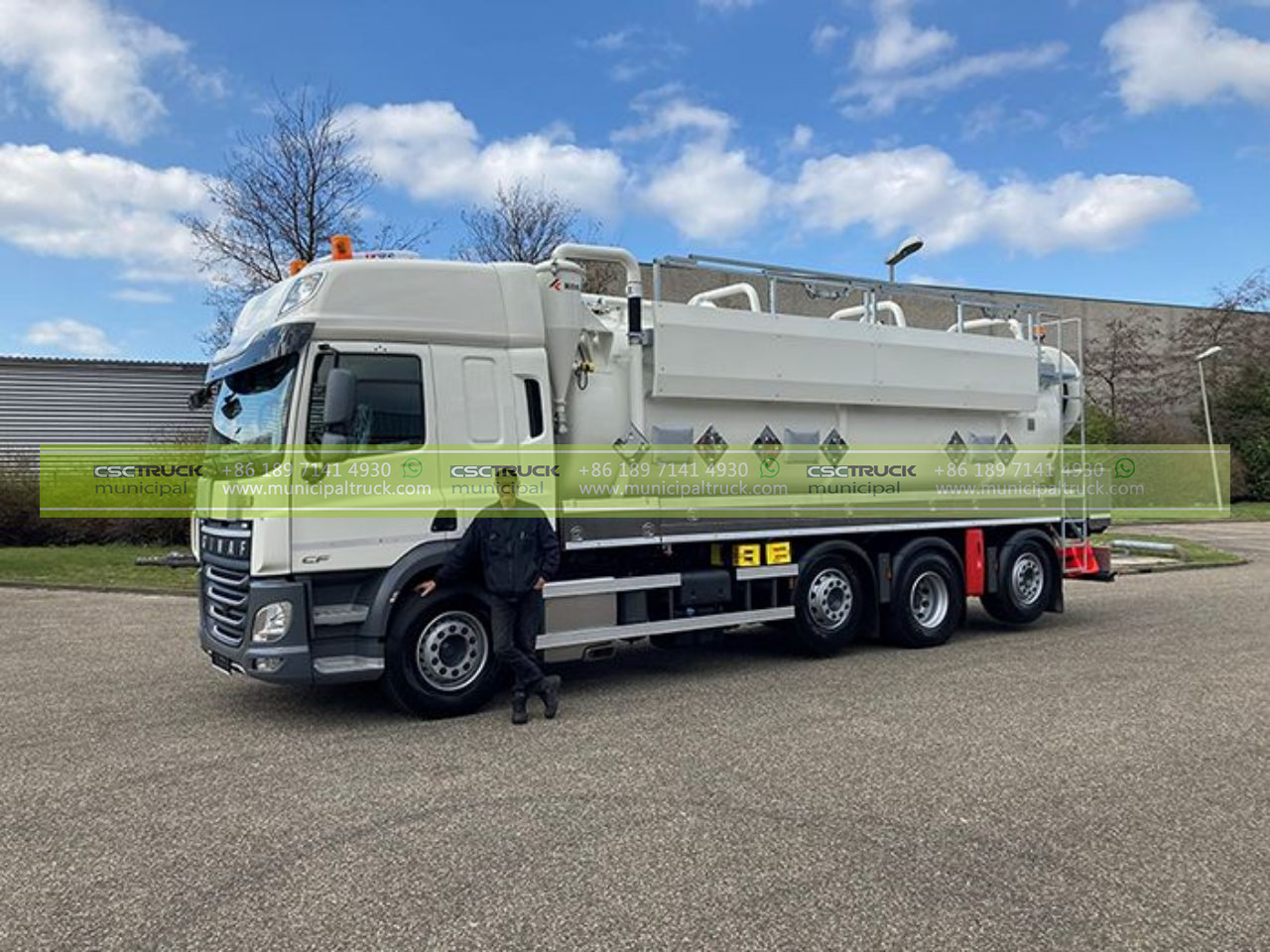
Conclusion
Sludge collector truck maintenance is not just about fixing mechanical issues; it’s about upholding the health of our communities and the environment. By intertwining sustainability with maintenance practices, we pave the way for cleaner cities, healthier ecosystems, and more efficient waste management processes. As we forge ahead, waste management entities must collaborate, innovate, and embrace the evolving landscape of maintenance technologies. By doing so, we can ensure that sludge collector trucks continue to serve their vital role in waste management while contributing to a greener and more sustainable future.
Contact us for this municipal truck or similar trucks: [email protected] Call us or What's APP us: +86 189 4292 3930
